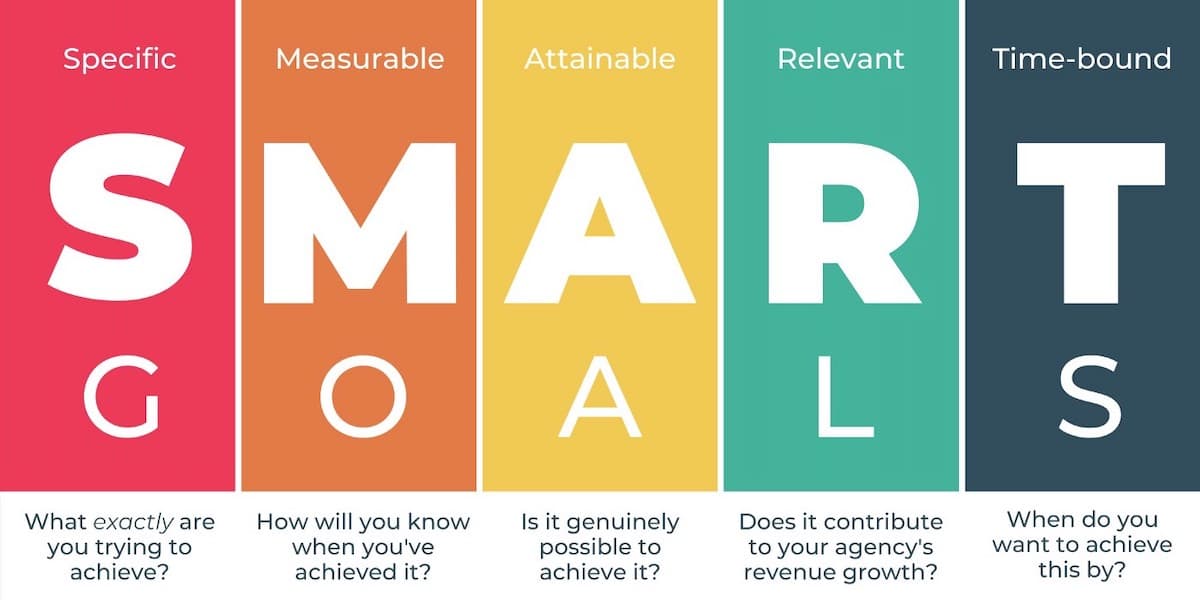Know What are SMART goals in 2024
Today we will talk about What are SMART goals in detail.
What are the goals?
A goal is the desired result you want to see sometime in the future.
Short-term goals are small, easy to accomplish, and focus on things you want to accomplish in the next year or two.
Long-term goals focus more on the big picture and the things you’ll love three, five, or 10 years from now.
Targeting techniques and strategies have been a topic of interest to scientists and medical professionals for decades. Dr. Edwin Locke was the most famous of these people, who found a direct correlation between performance, positivity, and focused goals.
Goal setting proves:
- improve self-esteem and confidence
- increase motivation
- positively influences behavior
- lead to a more positive outlook on life, as people who experience failure tend to view it more as a setback
- Increase self-awareness as you are constantly evaluating your performance, strengths, and weaknesses
What are SMART goals?
SMART goals are a way to create meaningful goals. George T. Doran developed the concept in 1981 to help managers set and reach their goals.
Each letter in the SMART acronym focuses on a different aspect that makes your goals more focused and achievable:
- S – specific
- M – Measurable
- A – achievable
- R – Realistic
- T – Timed
Research has found that people who write down their goals are 20% more likely to achieve them. 90% of goal-setters perform better when their goals are relevant and specific.
Using the SMART goal framework helps you create the best possible goals you can work on in your career and personal life.
What are the five aspects of the SMART Framework?
Using this framework is easy. For each section, you need to work through a series of questions until you clearly understand your goal and what you need to do to achieve it.
S – specific
When writing a goal, you want it to be as specific as possible. ‘I want a big house, and a fancy car’ is not a goal; it is a statement.
Use ‘W’ questions to help:
Who is involved in achieving this goal? Who else is involved if the goal is task-oriented and you are working on a group project? Is it just you or you and your partner?
What – what do you want? Feel free to be very specific or think big. Write that down if you want a five-bedroom house with a wrap-around terrace, a large garden, and a 100-year-old willow tree. If you want a six-figure salary by age 35, make that your goal. Remember that you will set long and short-term goals. If your desire seems impossible, label it as a long-term goal and create smaller goals to help you achieve it.
Where – This is only sometimes needed, but if your goal is location-specific, note it.
Why – What is the reason for this goal? Again, be specific. If the goal is about a promotion, you might want it because it means more money, allowing you to pay off your student loans faster or save a deposit on a house. You may want it because it will enable you to choose your working hours. Associating a specific ‘why’ with your goal gives it value and meaning. When you read about your goal and what achieving it will do for you, it creates a great sense of desire.
The ‘when’ is addressed later under ‘t – timebound.’
M – Measurable
What evidence would you use to decide whether the goal has been met?
If you’re looking for a new job, the goal might be: Apply to five new jobs.
The measurable financial goal is like this: Save $700 in March.
Setting measurable milestones helps you evaluate where you currently are and how to improve. If you fall short of a goal, you must readjust your goals or step up your game.
A – achievable
Some people refer to this section as ‘receivables.’
This part is designed to inspire you, not intimidate you. For example, what do you need to achieve if your goal is to earn a seven-figure salary? Do you need to take or study certain courses for MBA? Should you change jobs or work toward a promotion?
Never look at your goal and think it is unattainable. Always try to find a way to make it a reality.
R – Realistic
You may also see it labeled as ‘contextual.’
Again, this has nothing to do with how likely you are to achieve this goal but with how it aligns with yours.
- Goals that align with our core values are more likely to be successful.
- Ask yourself if this is something you want or something expected of you.
- If this goal is short-term, consider how it contributes towards your larger goals.
We hope you like our article on “What are SMART goals, Thanks.






